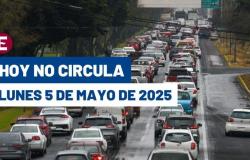On the main avenue of Core 8, there are premises of different active items with sales to the public, as well as informal economy positions.
When passing through its streets, houses with water recharges can be seen, as well as fish, vegetables, clothing and other tables of street vendors of spare parts and hardware parts.
However, as you advance in the sector, their vendors recognize that sales are not as before and have even had to change ex officio.
Jesús Belllorín, for example, goes out every day to sell ice cream to be able to get his children forward. “I have the tits in 40 bolivares, whether in cash or on mobile payment.”
He had a fixed job but did not reach him to take sustenance home.
“A good day and a bad day, but thanking God,” he replies with respect to his sales.
Fall of wages
For its part, Hermelinda Hurtado offers cookies, empanadas, pepitos, candies, juices and soft drinks from his cellar in the Gran Sabana sector, but still, the movement is not the same as before.
“When I started it was Chevere, there was more movement, but now it’s not as before,” he says.
He is about 13 years old with his business, but lately he considers that the dollar increase and the minimum wage that is not enough, are reasons so that he does not have as many customers as before.
Hurtado is not wrong. According to figures from the Venezuelan Observatory of Finance, the remuneration of Venezuelan workers in the Commerce and Services sector (private), registered a 1.4 % drop in constant bolivars during the first quarter of this year, compared to the same period of the previous year.






